The Liverpool-born artist opens the doors to his Norwegian home studio. Words and photos: ANNE-KATRIN PURKISS

You’ve lived and worked in Norway for the past 18 years. What prompted you to move there?
From the age of 20, or even before that, I wanted to experience the North. I had a feeling for it which was infinitely stronger than following where most painters went: France.
What sparked that interest?
I grew up in Liverpool in the 1930s and being rather on my own as a child enabled me to see the aspects of nature associated with coastal scenery. The horizon meant something to me and the clouds, and where they came from. The winter, hail, snow… They always seemed to come from the North and they have become symbolic in my work ever since. I wanted to find some way of interpreting nature.
When did you first visit Norway?
I first came here in 1957, travelling with a student from the Royal Academy Schools to the Western Fjords. Three years later, I won a Norwegian government scholarship administered by the British Council. I went to the Kunstakademiet in Oslo for a month, and after that I spent seven months living and working in a fisherman’s hut. That experience was extraordinarily formative.
Which artists were influential on your work?
Firstly, Samuel Palmer and William Blake, particularly Blake’s illustrations for Dante’s Divine Comedy with the sea horizon and the strange sun, and the cliffs.
هذه القصة مأخوذة من طبعة March 2019 من Artists & Illustrators.
ابدأ النسخة التجريبية المجانية من Magzter GOLD لمدة 7 أيام للوصول إلى آلاف القصص المتميزة المنسقة وأكثر من 9,000 مجلة وصحيفة.
بالفعل مشترك ? تسجيل الدخول
هذه القصة مأخوذة من طبعة March 2019 من Artists & Illustrators.
ابدأ النسخة التجريبية المجانية من Magzter GOLD لمدة 7 أيام للوصول إلى آلاف القصص المتميزة المنسقة وأكثر من 9,000 مجلة وصحيفة.
بالفعل مشترك? تسجيل الدخول

Still life IN 3 HOURS
Former BP Portrait Award runner-up FELICIA FORTE guides you through a simple, structured approach to painting alla prima that tackles dark, average and light colours in turn
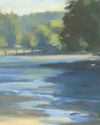
Movement in composition
Through an analysis of three masterworks, landscape painter and noted author MITCHELL ALBALA shows how you can animate landscape composition with movement
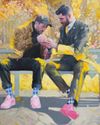
Shane Berkery
The Irish-Japanese artist talks to REBECCA BRADBURY about the innovative concepts and original colour combinations he brings to his figurative oil paintings from his Dublin garden studio

The Working Artist
Something old, something new... Our columnist LAURA BOSWELL has expert advice for balancing fresh ideas with completing half-finished work
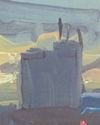
Washes AND GLAZES
Art Academy’s ROB PEPPER introduces an in-depth guide to incorporating various techniques into your next masterpiece. Artwork by STAN MILLER, CHRIS ROBINSON and MICHELE ILLING

Hands
LAURA SMITH continues her new four-part series, which encourages you to draw elements of old master paintings, and this month’s focus is on capturing hands

Vincent van Gogh
To celebrate The Courtauld’s forthcoming landmark display of the troubled Dutch master’s self-portraits, STEVE PILL looks at the stories behind 10 of the most dramatic works on display
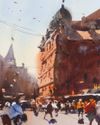
BRING THE drama
Join international watercolour maestro ALVARO CASTAGNET in London’s West End to paint a dramatic street scene
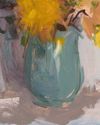
Serena Rowe
The Scottish painter tells STEVE PILL why time is precious, why emotional responses to colour are useful, and how she finds focus every day with the help of her studio wall

Bill Jacklin
Chatting over Zoom as he recovers from appendicitis, the Royal Academician tells STEVE PILL about classic scrapes in New York and his recent experiments with illustration